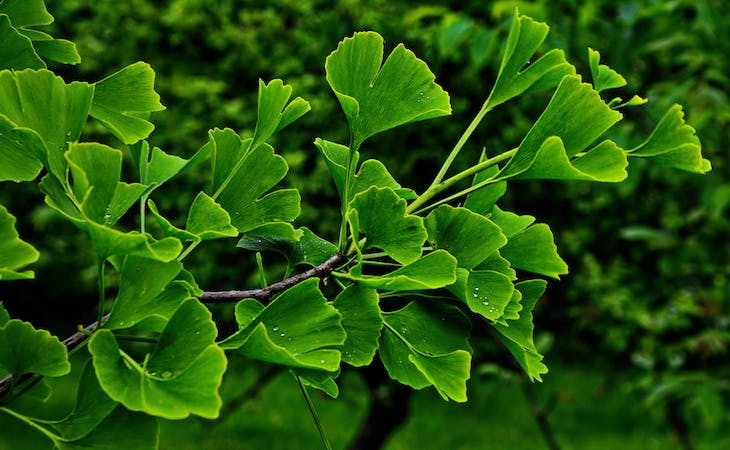Herbs have been used as medicine for thousands of years, and quite a few are well-known for their sleep-promoting benefits. They may even have a few advantages over pharmaceutical sleep aids.
“Unlike prescription medications, herbs are easier to access, don’t have strong side effects, and are often safe to use,” says Lisa Moskovitz, RD, CEO of New York Nutrition Group. “That said, it’s important that you always check in with your primary care physician before you take any new herbal supplements.”
That’s because some herbs can interfere with other medications and medical conditions, and some have not been studied for their potential effects on certain populations, such as pregnant women.
Wondering which sleep-inducing herbs are worth trying? Read on for everything you need to know about eight of the most effective and science-backed herbs for sleep, plus the safest ways to take them.
Herbs for insomnia
Here are the top herbs to help you lower your stress and anxiety levels and sink into a restful sleep, with scientific research to back them up.
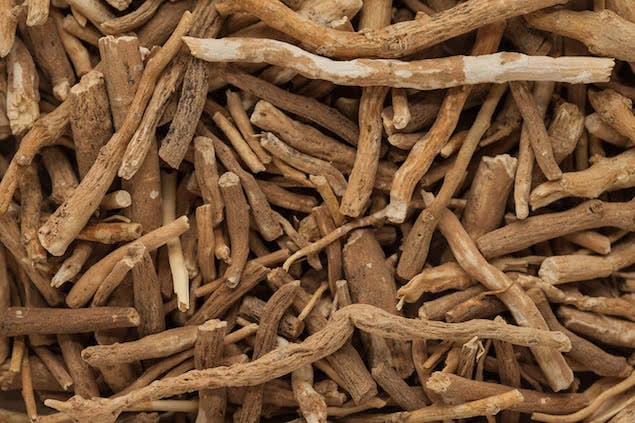
Ashwagandha
For over 3,000 years, traditional Ayurvedic medicine practitioners in India have used extracts from the ashwagandha plant’s roots and leaves to treat a slew of ailments.
In particular, “the leaves of the plant contain the compound triethylene glycol, which promotes sleep induction,” says Amy Goodson, RD, in the Dallas-Fort Worth area.
A 2020 study published in Sleep Medicine shows supplementation with 120 mg of ashwagandha extract once a day can help otherwise healthy people suffering from non-restorative sleep fall asleep faster and experience an impressive 72% increase in self-reported sleep quality (compare that to just 29% in the placebo group!).
Patients with insomnia who took 300 mg of ashwagandha extract twice a day experienced similar benefits in sleep onset and quality as well as reduced anxiety, per a 2019 study in Cureus.
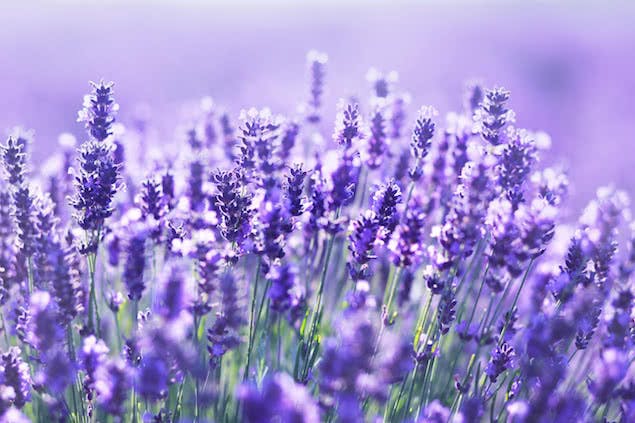
Lavender
This purple herb has been used to relieve stress and anxiety for centuries, and of all essential oils for sleep, lavender is perhaps the best known for its calming effects.
“There are minimal studies done on lavender and sleep, but several studies show that simply smelling lavender oil’s soothing fragrance shortly before bed may be enough to improve sleep quality,” says Goodson.
For example, one Thai study showed that inhaling lavender essential oil could decrease blood pressure, heart rate, and skin temperature, in turn leading to greater relaxation and a more refreshing night’s sleep.
Another 2015 study of 60 cardiac patients in the intensive care unit of a Turkish hospital found that inhaling lavender essential oil helped reduce anxiety and improve sleep quality.
In light of these findings, try adding a few drops of lavender essential oil to a diffuser or onto a nearby pillow to support a good night’s sleep. (Here’s how to make a sleep spell jar with herbs such as lavender.)
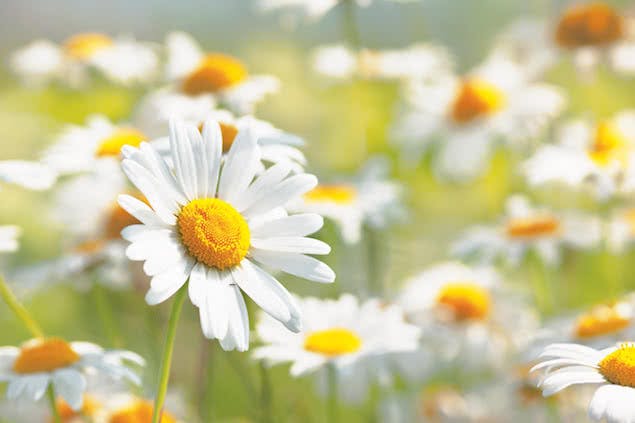
Chamomile
Another ancient herb, chamomile is a beloved sleepytime tea for many of us, though it can also be inhaled as an essential oil or taken as an extract in capsule form.
Chamomile’s calming effects are believed to come from an antioxidant called apigenin, which, along with other compounds, binds to the brain’s gamma-aminobutyric acid (GABA) receptors, aka the “brakes of the brain,” easing you into relaxation, explains Michael Breus, PhD, clinical psychologist and fellow of the American Academy of Sleep Medicine.
A 2019 systematic review of 15 studies published in Phytotherapy Research confirms that chamomile is generally safe and effective for reducing anxiety and improving sleep quality, and one study showed taking chamomile extract drops twice a day could help people fall asleep faster.
However, if you’re looking for herbs for insomnia, it’s important to note that chamomile doesn’t seem to help treat this chronic sleep disorder, per a 2011 study.
Related: I tried a personalized sleep supplement—here’s what happened
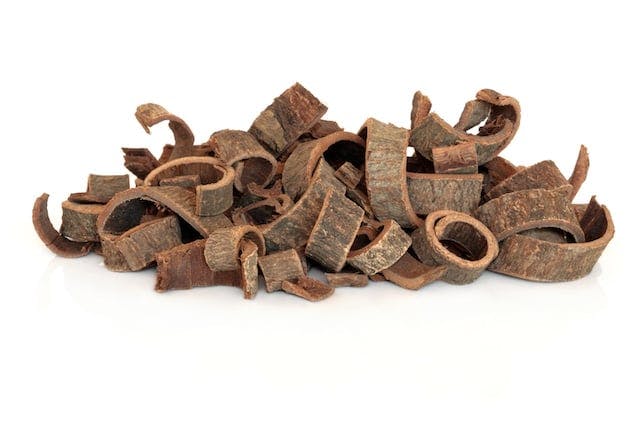
Magnolia bark
“One of my favorite lesser-known herbs for sleep is magnolia bark,” says Breus. Similar to chamomile, magnolia bark can help dial down anxiety and promote muscle relaxation before bed by acting on the GABA receptor.
While more research is needed to clarify exactly what magnolia bark supplements can do for a good night’s sleep, one animal study published in Neuropharmacology showed the herb helped mice fall asleep faster and increased the amount of time they spent in restorative deep sleep.
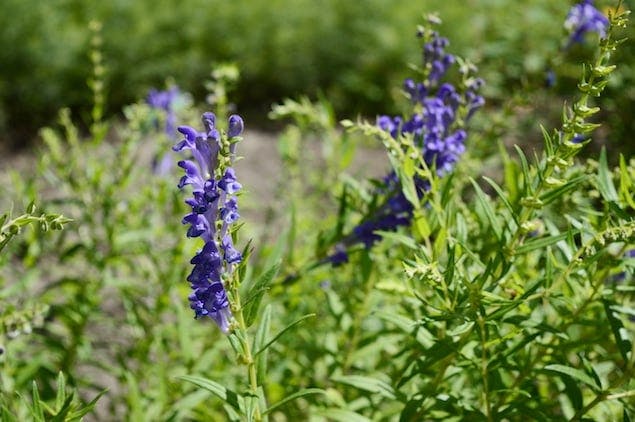
Skullcap
Anxiety over today, tomorrow, and, well, everything keeping you up? A minty herb named for the helmet-like shape of its flowers, skullcap has been used in traditional medicine as a natural sedative and anxiety treatment.
“It’s thought that American skullcap positively impacts mood and reduces anxiety by stimulating GABA, which helps calm nerves,” says Goodson. (Here are the best nootropics for sleep.)
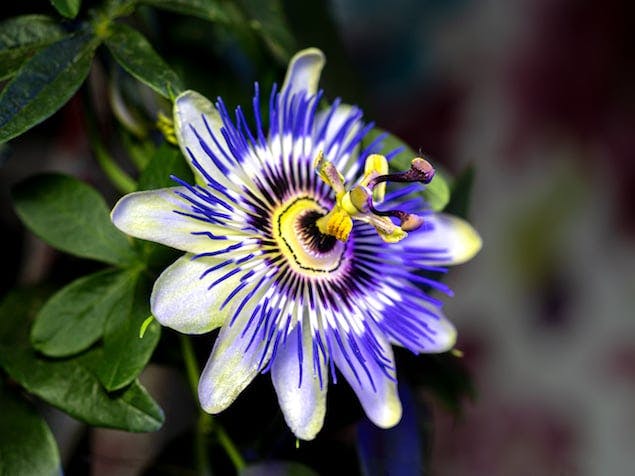
Passionflower
Traditionally used as an herbal medicine and tea, passionflower appears to influence numerous neurotransmitters in the brain in a way that can help relieve anxiety and stress and induce sleep, says Moskovitz.
While more studies are needed, some show that taking passionflower extract may significantly improve total sleep time and efficiency in adults with insomnia, and sipping passionflower tea can improve self-reported sleep quality in healthy adults with mild sleep issues as well.
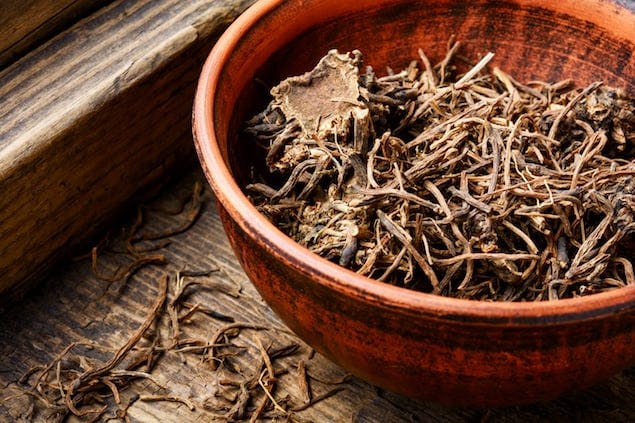
Valerian root
Derived from the malodorous root of a flowering grassland herb, valerian root is one of the most popular herbs for sleep. One survey found about two million Americans tried it in the past week, and it’s available as a tea or in capsule form.
While studies on valerian root’s potential impact on sleep and insomnia are inconclusive, many study participants report that valerian root supplements helped improve their sleep quality.
“It has been effective for many of my clients,” says Breus. For some sleepers, 300 to 900 mg just before bed did the trick, according to a systematic review.
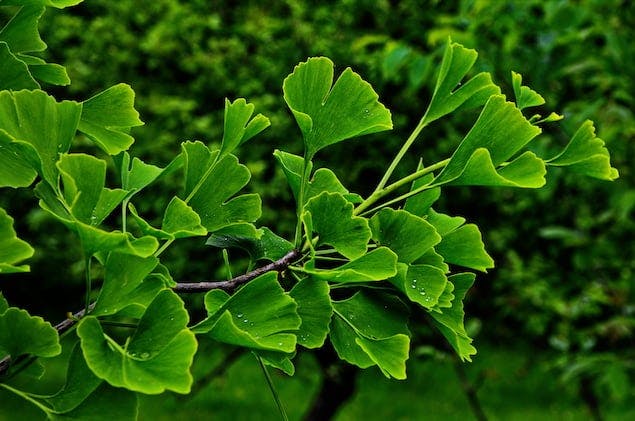
Ginkgo biloba
Extracts of ginkgo biloba, or the maidenhair tree, have been used to improve concentration and memory for centuries. With relaxation-enhancing abilities, this herb can also be a suitable sleep aid to incorporate into your nightly bedtime routine, says Moskovitz.
While more research is needed, one small study showed taking 240 mg of ginkgo biloba extract 30 minutes to an hour before bed could help improve self-reported sleep quality for healthy adults.
Side effects of using herbs for sleep
Before you stock up on herbs to help you sleep, experts agree that it’s best to check in with a doctor first to determine the best options for you.
Certain herbs can interact with other supplements or medications, and some may not be safe or effective depending on your medical history. For example, pregnant or breastfeeding women should not take ashwagandha, skullcap, magnolia bark, or passionflower due to side effects and limited studies.
Because the Food and Drug Administration doesn’t regulate supplements, it’s also sometimes difficult to know what exactly you’re purchasing. A medical professional can help guide you toward a solution that suits your needs in light of your medical history and suggest a trustworthy manufacturer.

